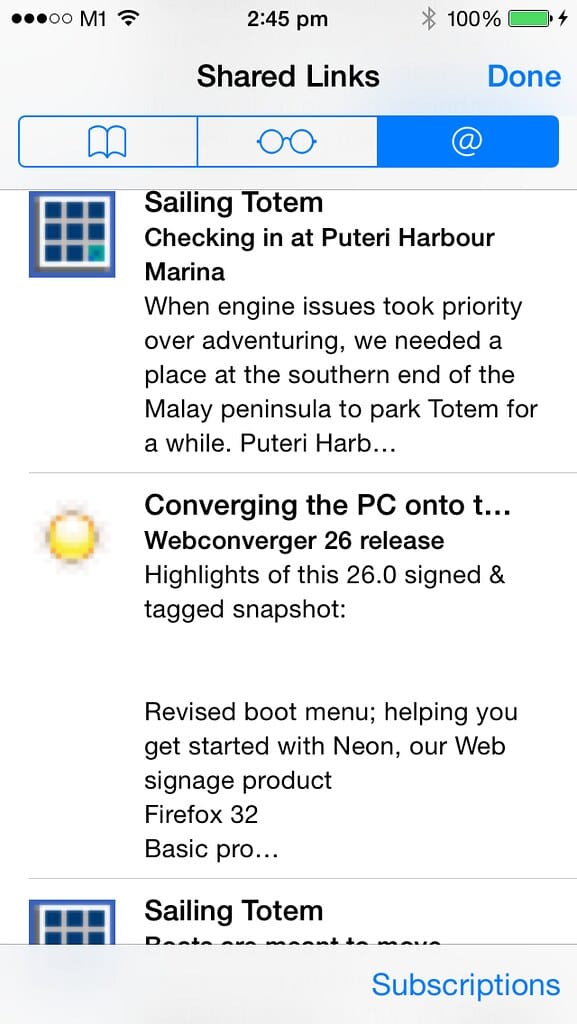RSS Readers in 2024: Why Power Users Are Still Choosing Feeds Over Social Media
In an era dominated by algorithmic social media feeds and push notifications, a question recently posed on Slashdot has sparked considerable debate: "Who's still using an RSS reader?" The responses reveal a surprising truth – while RSS may seem like a relic of the early web, it's experiencing a quiet renaissance among users who value control, privacy, and signal-to-noise ratio in their information diet.
The Unexpected Resilience of RSS
RSS (Really Simple Syndication) was supposed to be dead by now. When Google Reader shuttered in 2013, many declared it the end of an era. Social media platforms like Twitter and Facebook promised to deliver personalized content streams that would make RSS obsolete. Yet here we are in 2024, and RSS readers are not only surviving – they're thriving in specific niches.
The Slashdot discussion thread, which generated hundreds of responses, paints a picture of dedicated users who have found RSS to be an indispensable tool for information management. From software developers tracking technical blogs to researchers monitoring academic publications, RSS continues to serve users who need systematic, comprehensive coverage of their areas of interest.
Who's Still Reading RSS and Why
The Privacy-Conscious Professional
Modern RSS users often cite privacy as a primary motivation. Unlike social media algorithms that track every click, hover, and interaction, RSS feeds deliver content without surveillance. "I control what I read, when I read it, and how much attention I give it," noted one Slashdot commenter, echoing a sentiment shared by many respondents.
Content Creators and Researchers
Journalists, bloggers, and researchers have found RSS particularly valuable for comprehensive monitoring. While social media algorithms might suppress or prioritize certain content based on engagement metrics, RSS provides exhaustive coverage of chosen sources. This makes it invaluable for professional monitoring and competitive intelligence.
The Minimalist Reader
Many users appreciate RSS for its clean, distraction-free reading experience. Without comments, likes, shares, or algorithmic suggestions cluttering the interface, readers can focus purely on content consumption. This appeals particularly to users experiencing social media fatigue.
Popular RSS Readers Leading the Revival
The landscape of RSS readers has evolved significantly since Google Reader's demise. Several applications have emerged as favorites among the community:
Feedly remains the most popular choice, offering a polished interface and robust organizational features. With over 15 million users, it has successfully captured much of Google Reader's former audience.
Inoreader appeals to power users with advanced filtering capabilities and social features. Its ability to handle large numbers of feeds makes it popular among professional users.
NetNewsWire has gained traction among Mac users seeking a native, privacy-focused experience. The open-source application embodies the simplicity that made RSS popular initially.
Self-hosted solutions like Miniflux and FreshRSS attract technically savvy users who want complete control over their reading experience and data.
The Algorithm Backlash
The renewed interest in RSS reflects growing dissatisfaction with algorithmic content curation. Social media platforms increasingly prioritize engagement over relevance, leading to echo chambers and clickbait content. RSS offers an antidote – chronological, unfiltered access to chosen sources.
This shift is particularly pronounced among technical professionals. Software developers, in particular, have returned to RSS for tracking industry blogs, documentation updates, and project releases. The precision and completeness of RSS feeds align well with the methodical approach many technical professionals prefer for staying informed.
Challenges and Limitations
Despite its advantages, RSS faces real challenges in 2024. Many publishers have removed or limited their RSS feeds, prioritizing social media distribution and email newsletters. The format also struggles with rich media content and interactive elements that modern web publishing has embraced.
Additionally, RSS requires more active curation than algorithmic feeds. Users must discover and subscribe to feeds manually, creating a higher barrier to entry than platforms that automatically suggest content.
The Future of Feed Reading
The persistence of RSS in 2024 suggests that a significant segment of internet users values control and intentionality in their content consumption. As concerns about social media's impact on attention spans and mental health continue to grow, RSS offers a compelling alternative for deliberate information consumption.
For users overwhelmed by the noise of modern digital media, RSS readers provide a return to the web's original promise – easy access to information from chosen sources, consumed at your own pace, without algorithmic interference. In a world of infinite scroll and attention warfare, that might be exactly what we need.
